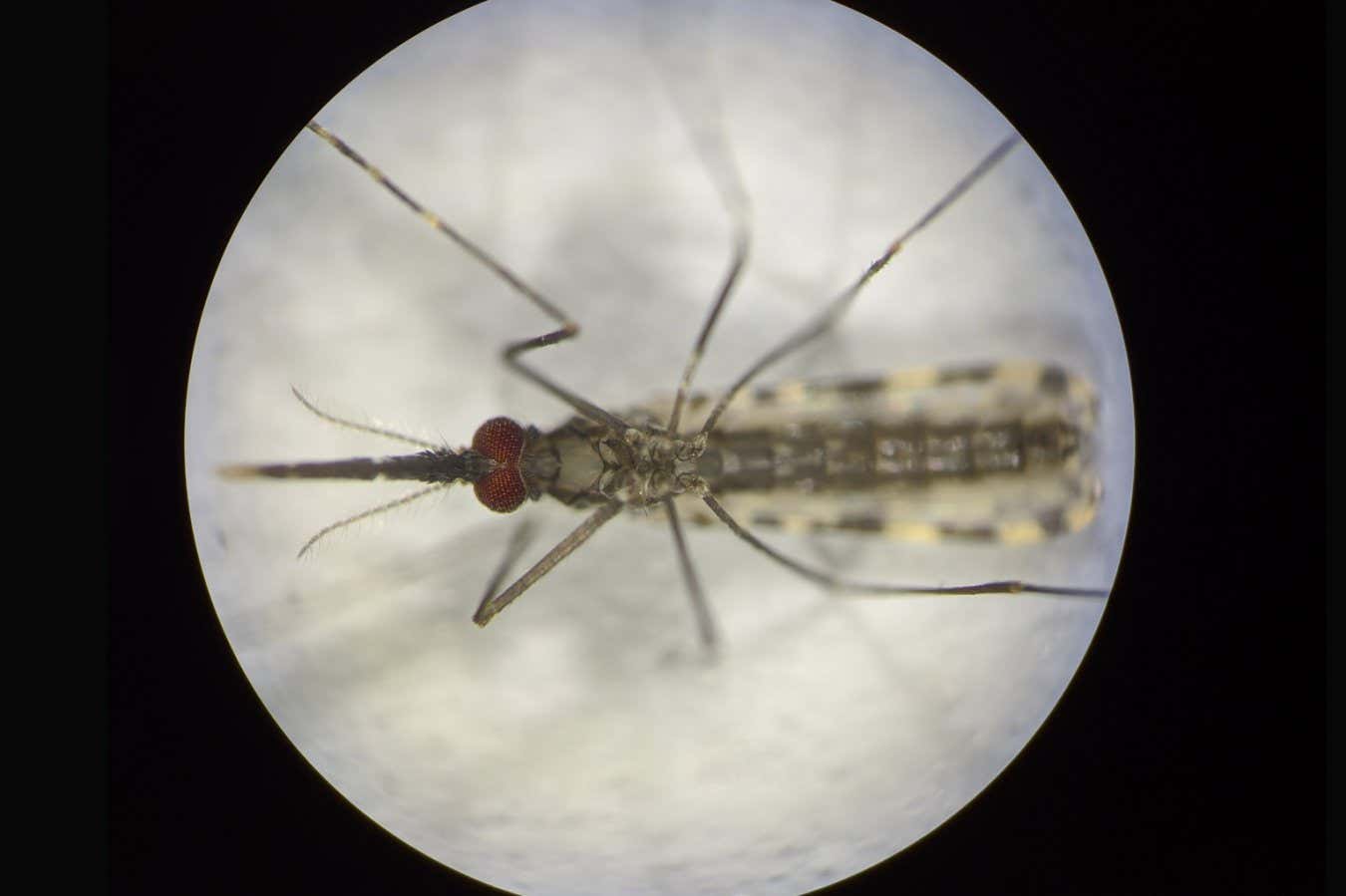A gene-editing technique makes mosquitoes produce antibodies against the malaria parasite, which could mean cases in people are also slashed
By Clare Wilson
10 July 2023
A female Anopheles gambiae mosquito. Its red eyes indicate the presence of a modified gene intended to confer malaria resistance
Rebeca Carballar-Lejarazú
Mosquitoes have been gene edited so they are immune to the parasites that cause malaria.
If released into the wild, the genetic modification should spread through a population of mosquitoes because it contains a sequence known as a “gene drive”, which means all the modified insects’ offspring would inherit the immunity. This approach could slash the numbers of malaria cases in people.
Malaria is one of the world’s leading causes of death and ill health, taking a particular toll on young children in sub-Saharan Africa. Two vaccines have recently been developed, but they only give partial immunity.
Advertisement
Other high-tech strategies against mosquito-borne diseases are under investigation, including gene drives that kill all mosquitoes in a targeted area. But these could have unpredictable effects on ecosystems, says Anthony James at the University of California, Irvine.
His team’s approach allows mosquitoes to live, but makes them produce antibodies that kill the major malaria-causing parasite, a single-celled organism called Plasmodium falciparum.
The inserted DNA includes the genes for two antibody fragments; each one targets the parasite at a different stage of its life cycle within mosquitoes. This lowers the chance that the parasite will evolve resistance, says James.
